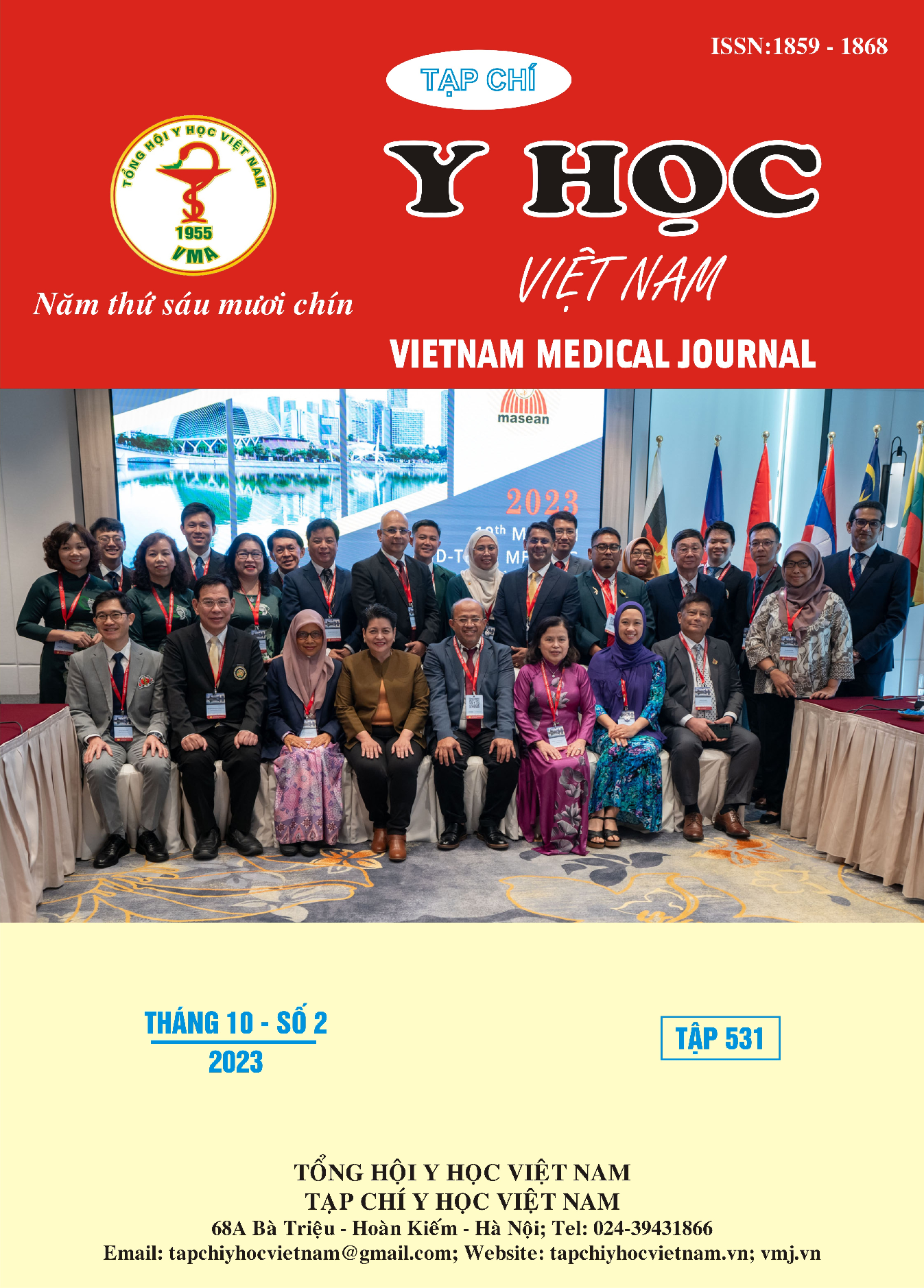RELATIONSHIP BETWEEN CAREGIVER BURDEN AND CHARACTERISTICS OF PARKINSON’S DISEASE PATIENTS WITH HYPERTENSION
Main Article Content
Abstract
Objective: To investigate the relationship between caregiver burden and some characteristics of Parkinson's disease patients with hypertension. Subjects and methods: A cross-sectional study on 50 Parkinson's patients with hypertension and 50 caregivers for Parkinson's patients at the National Geriatric Hospital. The study subjects were interviewed according to a medical record, and the burden of care was assessed by the Zarit Burden Interview Scale (ZBI) including 6 domains. Results: The total ZBI score of caregivers for Parkinson's patients with grade II hypertension (29.4±15.9) was statistically significantly higher than that of caregivers for Parkinson's patients with grade I hypertension (18,9±10,0). The fields of physical, mental, social, and self-criticism had significantly higher scores in the group of caregivers with grade 2 hypertension than in the group with grade 1 hypertension. The average score in the mental and financial burden area was significantly higher in the group of caregivers for patients with hypertension duration ≥ 5 years (p<0.05). As the daily activity dependency index (Barthel index) decreased, the mean scores across all areas of care burden increased. A patient's psycho-behavioral symptoms affect all areas of the burden of care and are particularly strongly correlated with the caregiver's mental burden. Conclusion: The burden of caregivers of patients with Parkinson's disease with hypertension is related to many factors such as hypertension classification, duration of hypertension, dependence on daily activities, and psycho-behavioral symptoms of the patient. sick
Article Details
Keywords
Caring burden, Parkinson's disease patients, hypertension, caregivers.
References
2. Martínez-Martín P, Forjaz MJ, Frades-Payo B, et al. Caregiver burden in Parkinson’s disease. Mov Disord Off J Mov Disord Soc. 2007;22(7):924-931; quiz 1060. doi:10.1002/mds.21355
3. Mosley PE, Moodie R, Dissanayaka N. Caregiver Burden in Parkinson Disease: A Critical Review of Recent Literature. J Geriatr Psychiatry Neurol. 2017;30(5):235-252. doi: 10.1177/0891988717720302
4. Leiknes, I., Lien, U. and Severinsson, E. (2015) The Relationship among Caregiver Burden, Demographic Variables, and the Clinical Characteristics of Patients with Parkinson’s Disease—A Systematic Review of Studies Using Various Caregiver Burden Instruments. Open Journal of Nursing, 5, 855-877. doi: 10.4236/ojn.2015.510091.
5. Tarakad A, Jankovic J. Diagnosis and Management of Parkinson’s Disease. Semin Neurol. 2017;37(02):118-126. doi:10.1055/s-0037-1601888
6. Unger T, Borghi C, Charchar F, et al. 2020 International Society of Hypertension Global Hypertension Practice Guidelines. Hypertension. 2020;75(6):1334-1357. doi:10.1161/HYPERTENSIONAHA.120.15026
7. Hagell P, Alvariza A, Westergren A, Årestedt K. Assessment of Burden Among Family Caregivers of People With Parkinson’s Disease Using the Zarit Burden Interview. J Pain Symptom Manage. 2017;53(2):272-278. doi:10.1016/j.jpainsymman.2016.09.007
8. Zhong M, Peppard R, Velakoulis D, Evans AH. The relationship between specific cognitive defects and burden of care in Parkinson’s disease. Int Psychogeriatr. 2016;28(2):275-281. doi: 10.1017/S10416 102 15001593
9. Genç F, Yuksel B, Tokuc FEU. Caregiver Burden and Quality of Life in Early and Late Stages of Idiopathic Parkinson’s Disease. Psychiatry Investig. 2019;16(4):285-291. doi: 10.30773/pi.2019.02.20


